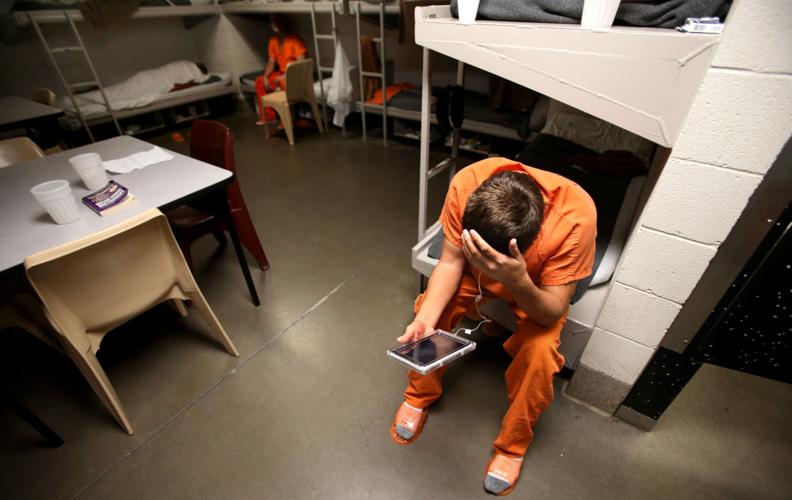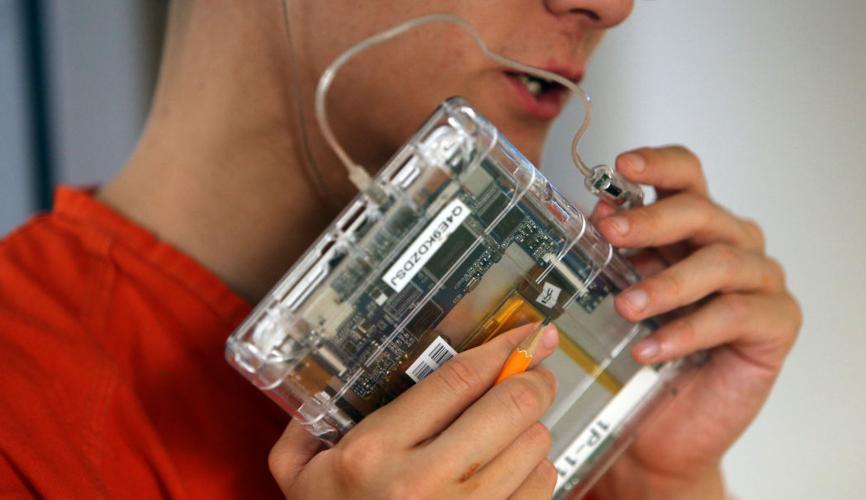A six-month pilot program that provided personal tablet computers to some inmates at the Pima County Jail will now launch into a full-fledged program to include up to 2,300 personal tablets for prisoners.
There will be no cost to taxpayers under a five-year contract with Global Tel Link Corp., said Sheriff Chris Nanos. The company, which provides technology services to correctional facilities across the nation, won the bid to offer the tablet services to the jail. The contract can be renegotiated every year.
Sheriff’s Corrections Bureau Capt. Sean Stewart said inmates were happy when told that most of them would have tablets to use by June 20.
So far, some 500 inmates have the wireless, portable personal computers that were provided by GTL, which will make money off prisoners who will pay for extra services and telephone calls. Prisoners can pay for the services with their jail accounts. The jail’s population Thursday was 1,900 inmates.
People are also reading…
Those extras include additional video games, books, music and movies. Eventually, inmates also will have access to email and electronic messaging services. They also will be able to chat with relatives or friends through remote visits, where the inmate and family member can see each other.
GTL also must provide free services, such as telephone calls, for the indigent. Stewart said under the contract the company must keep prices for extra services reasonable and “not bilk” prisoners or their family members. Also, once the company reaches $97,000 in profits from the sales of extra services, or in two years, it will then share 20 percent of future profits with the jail. That money will go into a jail welfare fund to be used in various ways to help inmates.
Inmates will not have access to the internet or social media.
Inmate Billy Ferguson, 22, said he likes playing games on his tablet, which is provided free by GTL.
“This tablet helps me pass time and it eliminates my stress,” he explained. Ferguson also likes phone service he can get through the tablet and plans on calling his parents. Inmates can only call out and cannot receive calls. The calls are monitored.
Prisoners will pay 20 cents a minute and will no longer have to stand in line certain times throughout the day to place one call for 15 minutes, paying $2.30. A 15-minute call using the tablets will cost $3.
Inmate Ron Ryan, 47, said he enjoys being able to make calls from his cell, and being able to read classics by Mark Twain, Charles Dickens, Jules Verne and H.G. Wells.
Stewart traveled with staff last year to a jail in Alameda County in California to see GTL’s program at work.
Then, Stewart and staff crafted a program to fit the jail’s needs — coming up with its own unique model that falls under Federal Communications Commission guidelines. He said the tablets also will have free educational and substance-abuse programs, offer religious services, provide a calendar, and also have medical and commissary forms. Attorneys can send confidential correspondence to their inmate clients through the tablets through email and electronic messaging capabilities. The inmate handbook and other information prisoners need to know will also be available.
GTL installed a Wi-Fi system at the jail that is secured only for inmates’ use of their tablets. They do not have access to any other Wi-Fi systems or signals, said Stewart. He said the company invested about $2 million to set up the secure, monitored system and the purchase of the tablets.
All inmates will receive tablets except those under disciplinary action, or those undergoing detoxification. Also, inmates who are suicidal will not receive a tablet, said Stewart. He said tablets can also be taken away from inmates if they do not follow rules.
Nanos said the number of visitors at the jail is expected to go down dramatically because inmates will be communicating with their family and friends through the tablet. He also said mail is expected to decline, which in turn is expected to lower the amount of contraband that enters the jail.
“We will keep on top of the system being used, and if it is getting abused we can change it and fix the problems,” Nanos said.
Contact reporter Carmen Duarte at cduarte@tucson.com or 573-4104. Twitter: @cduartestar









